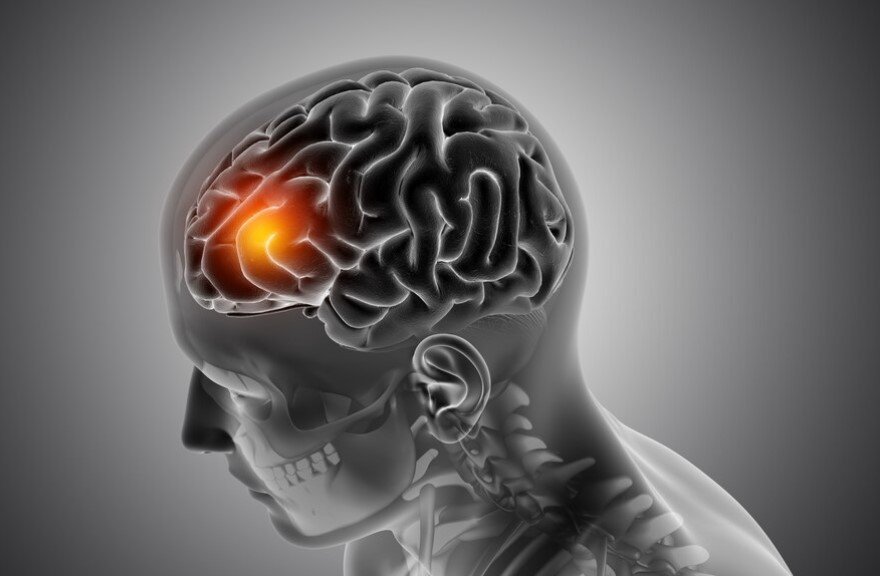Acute Stroke: A Race Against Time
Every 3.3 minutes, a life is lost to stroke, making it the third leading cause of death and adult disability worldwide. In India, a staggering statistic reveals that someone suffers from a stroke every minute. This alarming reality emphasizes the urgent need for awareness and swift action in the face of a stroke. Check out the article by Dr Kunal Bahrani, Stroke Specialist in Faridabad to know more about Stroke!
The term “stroke,” or “paralysis” (lakva in Hindi), denotes a sudden and severe disruption to the body’s functions, akin to being struck by an unforeseen event. This medical condition arises when the blood supply to the brain is interrupted, leading to severe consequences if not treated promptly. The interruption can occur due to two main causes: a hemorrhagic stroke, where a blood vessel bursts, or an ischemic stroke, where a blood vessel is obstructed by a clot. Both scenarios deprive the brain of essential oxygen and nutrients, resulting in damage to brain tissue.
The Critical Time Factor
The treatment of an acute ischemic stroke is highly time dependent. One of the earliest and most effective treatments available is the administration of recombinant tissue-type plasminogen activator (r-tPA), a thrombolytic drug that works to dissolve blood clots. However, for this treatment to be effective, it must be administered within three hours of the onset of symptoms. International guidelines recommend a ‘door-to-needle time’—the duration from when a patient enters the emergency department to when they receive the medication—of 60 minutes or less.
Regrettably, many patients arrive at emergency departments after the critical three-hour window, missing out on life-saving treatment. A significant contributor to this delay is the lack of awareness about stroke symptoms among the general population. Common symptoms include sudden numbness or weakness in the face, arms, or legs, especially on one side of the body; confusion or trouble speaking; difficulty seeing in one or both eyes; and difficulty walking, dizziness, or loss of balance and coordination.
Several factors contribute to the delay in seeking treatment, including:
- Delayed Arrival: Many individuals do not recognize stroke symptoms and delay seeking help.
- Family Consent: In cases where relatives are required to consent to thrombolysis, hesitation or lack of understanding about the urgency can lead to further delays.
- Emergency Services: The unavailability of efficient ambulance services, especially in rural areas of India, exacerbates the situation.
Research indicates that only 15% of stroke patients in India reach the hospital within the critical three-hour window. Alarmingly, fewer than 20% of general physicians are aware that r-tPA can be administered within the first 3 to 4.5 hours of stroke onset.
The Impact of Stroke on Lives
A stroke can profoundly impact not just the individual affected, but also their families and caregivers. This year alone, it is estimated that four out of five families in India will be touched by a stroke. The effects of stroke can be debilitating, leading to long-term disability, which in turn places a significant burden on loved ones. It is crucial to prioritize awareness, early detection, and rapid response to minimize the impact of this condition.
If you or someone you know is experiencing stroke symptoms, seeking immediate medical attention can be the difference between life and death.
Consulting a Stroke Specialist
In the journey to recovery and management of stroke, consulting an expert is paramount. Dr. Kunal Bahrani, recognized as the best stroke specialist in Faridabad, offers invaluable expertise and compassionate care to patients navigating the complexities of stroke treatment. His commitment to providing comprehensive care ensures that each patient receives personalized attention, maximizing their chances for recovery and a better quality of life.
In conclusion, stroke is a critical health issue that demands immediate attention and action. By raising awareness, understanding the symptoms, and knowing where to seek help, we can collectively reduce the incidence and impact of stroke in our communities. Remember, every second counts in the race against time during a stroke—don’t wait; act swiftly and seek the care you need.

